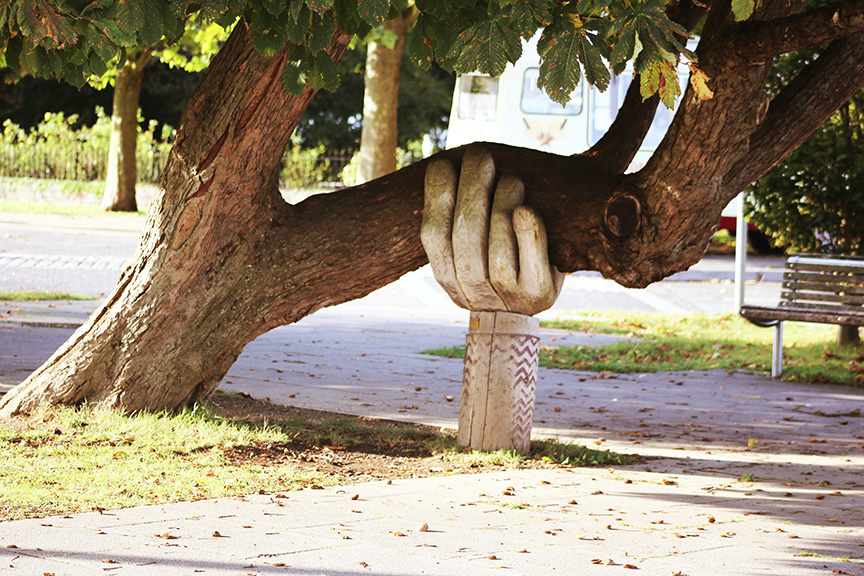I was recently asked by my pastor, Melanie Vaughn-Colwell of Oakhurst Baptist Church, to be part of a conversation sermon. This is where two or more people sit in front of the congregation to discuss the scripture and themes together, instead of a more traditional pulpit sermon by one individual.
I was honored to be asked and was especially excited because of the topic she suggested: What questions should the Body of Christ be asking ourselves in 2023?
As a researcher, this is the kind of conversation that I have with churches all the time. These questions are ones that have been asked for decades:
- Why is our church shrinking?
- How can we get more people to come to church?
- How can we survive financially?
- How can we make hard decisions without people getting mad?
- How can we get back to the way things were when the pews and coffers were full?
The curiosities and frameworks that lie beneath the surface of these questions are more accurately represented as:
- A church’s growth or decline is based mostly on internal factors, so if we shrink we must be doing something wrong, and if we “fix” things we will grow.
- A “good” church has more people participating year over year, and certainly not less.
- A church’s survival depends on traditional financial models (i.e. giving> budget).
- A church is better off when things stay non-controversial and keep the peace.
- A church’s survival in a form that looks like a glorified past is the ultimate goal.

I have to admit that when I started working with churches, I saw most of those frameworks as accurate and helpful for church health and vitality. I’m almost embarrassed to look back on that now. Melanie’s brilliant question reminded me that new times call for new questions, and finding new ways forward means we must often leave old frameworks behind. Asking new questions generates alternate curiosities and evolves our understanding of what it means to be Christians together, whether or not we call it “church.”
As Melanie and I explored these questions together, and as I reflected afterward, I came away with a few new questions and new frameworks to accompany them.
- How is God calling a particular group of people to fellowship, break bread, learn, and serve together this month/quarter/year?
- Together as a congregation, are we enough to truly build community and honestly know and be known (a favorite Oakhurst Baptist Church phrase)?
- Is our church a learning lab for navigating life’s changes and conflicts in healthy and transformative ways?
- What kind of church does God need to heal the world in 2023, in 2053, and in 2123?
Having now asked these new questions, an updated framework goes something like this:
- Groups of people are called together by God to do Christian life together.
- The forms this will take are unique and local and will vary as much as the flora and fauna that surrounds us.
- Truly “doing life together” requires more than 1 hour per week in order to share practice, build community, and truly know and be known.
- Christian life together should teach and model healthy communication, and transformational change skills, and must focus on the well-being of others more than ourselves.
It is plausible that this new framework will continue to evolve, if not fully change, over the course of the next decade. But I continue to feel it has great potential to change the way we model how people called by God are to do life together. Whether or not those groups look, sound, or act like old models of “church” is irrelevant.
We must ask new questions, lean into new curiosities, and build new frameworks to lean into the new things God is doing in and with us. It’s okay if they are not perfect – now or never. We have room to get things wrong and try again. Because no matter what, God is with us in all of it, loving and holding us as we question, explore, and build.



Comments
“the forms this will take are unique and local and will vary as much as the flora and fauna that surrounds us” This critical understanding is one of the keys to becoming realistic. Learning to love and fully know the biosphere where we live. The air, water, land and life forms are what need to be held up as the “bread of life”. Living unconsciously to being in the Garden of Eden is the same as expulsion from the garden. An example of such is having a pretty green lawn with no dandelions or bumble bees and even ants and snakes. We can not survive without diversity. The awakening to the truth is combined with pain and excitement to find friends such as the food birds like to dig up in our own gardens. The water is magical and precious. Peace be upon you all
This is spot on!! I do believe God has been directing ‘us’ for a long time to ‘see differently’ what we might be about in these times and the Covid has pushed us and our beloved churches over to face the need to ‘do differently’. Hallelujah – let’s begin this new time. – God is Still Speaking.
This idea of church as lab to grow transformational skills suggets to me it’s not enough for us to emphasize being disciples, but we are also “sent out” from tables, circles, kitchen counters, Zoom screens to witness to love in the changes and conflicts we all face.
The “new questions” and “updated framework” seem focused and foreword looking. I’d add to the final bullet point the church’s teachings and practices of responsibility for the wellbeing of our planet’s environment.